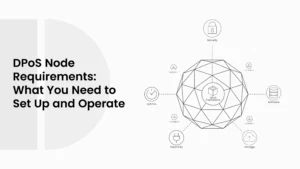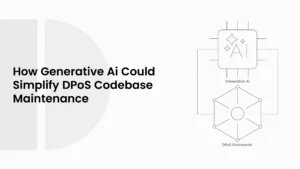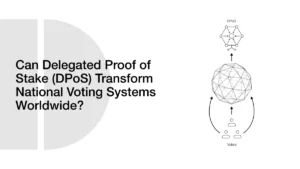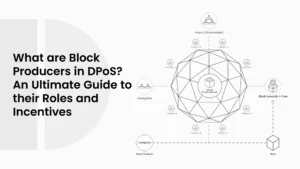8 Reasons a Validator Loses Your Vote in a DPoS System
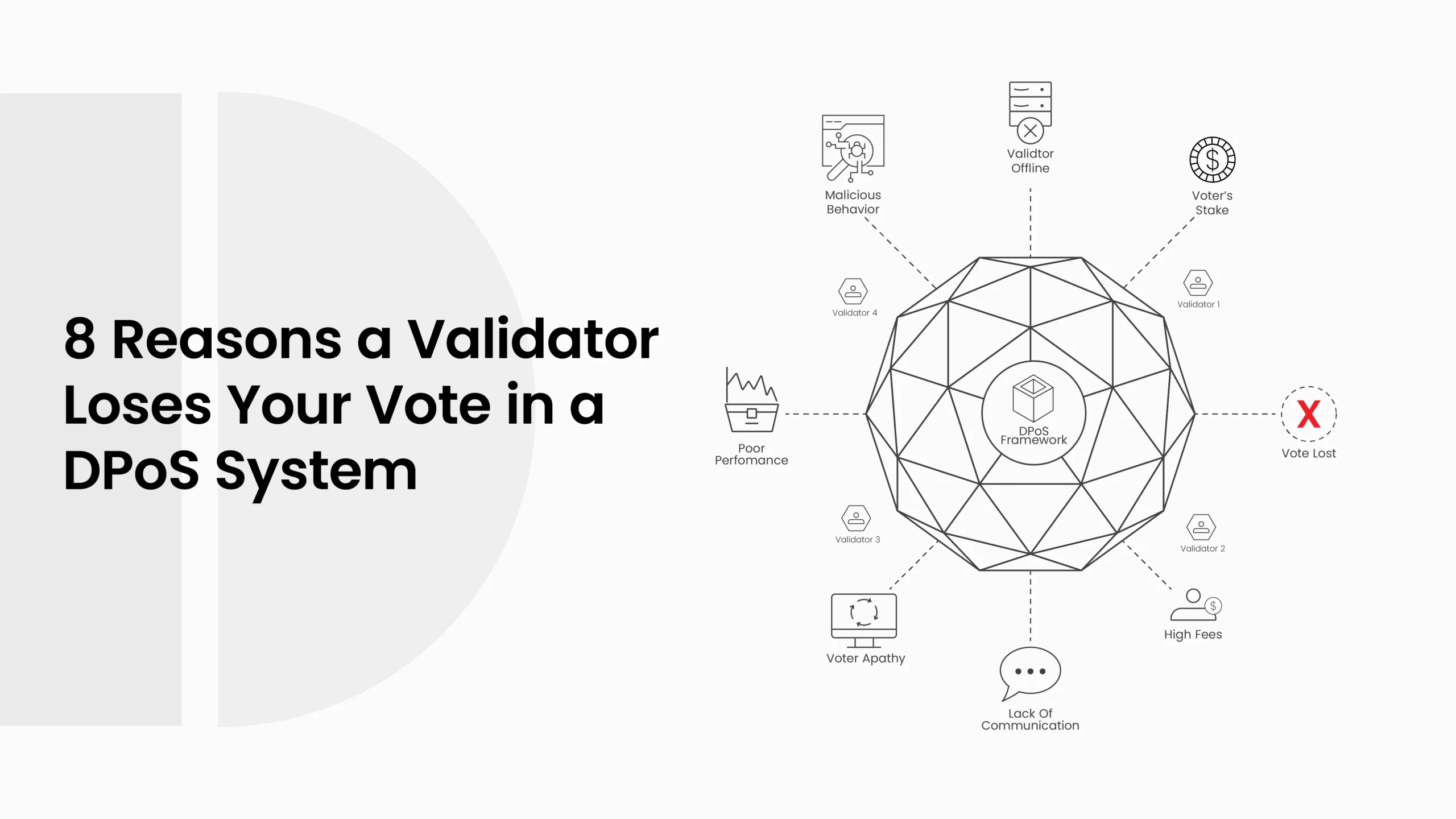
In a Delegated Proof of Stake (DPoS) system, a vote isn’t just a vote; it’s power, stake, and trust all rolled into one. You don’t cast it and walk away. You delegate it. You empower a validator (also known as a block producer or super representative) to speak and act on the user’s behalf in the network. And that’s a big deal.
- 1. Missed Blocks Start Piling Up
- 2. Going Silent on the Community
- 3. The Rewards Are Dropping, and No One Explains Why
- 4. There’s Zero Transparency About Their Setup
- 5. They Talk Big But Never Ship
- 6. They Skip Governance Votes
- 7. They’re Gaming the Delegation System
- 8. The Community No Longer Trusts Them
- Final Thoughts: Your Vote, Your Power
- Frequently Asked Questions About DPoS Validators and Voting
- What does a validator do in DPoS?
- Why do validators lose votes?
- What happens if my validator misses blocks?
- How can I check validator performance?
- Can I change my validator anytime?
- Do DPoS validators have to share rewards with voters?
- Glossary of Key Terms
But what if the validator you voted for is slipping? What if they’re missing blocks, ghosting the community, or turning your hard-earned stake into a PR nightmare? It may be time to revoke your vote and delegate elsewhere. Here are eight signs a validator is about to lose your vote, complete with comparisons, Web3 drama, and visuals to spot them fast.
ALSO READ: All You Need to Know About DPoS Node Requirements
1. Missed Blocks Start Piling Up
Every validator is assigned specific time slots to propose and sign blocks. It’s their number one job. If they begin missing those blocks regularly, it’s not just a technical issue; it’s a major red flag. Missed blocks slow down the network and reduce overall rewards for delegators like you.
While an occasional hiccup can happen, a pattern of missed blocks shows poor infrastructure or neglect. Sometimes it’s a server issue. Other times, they may lack backup systems or proper monitoring. Either way, a validator who can’t do the basics might not be worth the continued vote.
| Metric | Healthy Node | Troubled Node |
| Block production rate | 99.9%+ | Below 97% |
| Downtime incidents | Rare & brief | Frequent/stalled |
If the validator is consistently underperforming and not even acknowledging it, that’s the cue to explore alternatives.
2. Going Silent on the Community
Validators aren’t just machines; they’re supposed to be active members of the ecosystem. Whether that’s posting updates, answering technical questions, or engaging on governance issues, being present matters. If the last tweet or Discord post from the validator is old, that means something is wrong.
ALSO READ: The Economics of DPoS: How Token Inflation and Distribution Shape Blockchain Governance
Silence often signals disinterest. Validators in a more community-oriented mechanism, such as DPoS, have to answer to their voters. You have a right to know what they are constructing, how they are doing, and whether they are still operational. A disappearing validator when faced with a hard fork, software releases, and contentious discussions is no validator.
When their social outlets go silent and unanswered question postings in the forums persist, you are probably not the only one rethinking your delegation.
3. The Rewards Are Dropping, and No One Explains Why
Let’s be honest: most of the delegate tokens are expecting a return. That could be in the form of staking rewards, shared fees, or incentive programs. When those rewards shrink or vanish without warning, it’s time to pay attention.
There are valid reasons for a dip, such as lower network usage or fewer transactions, but your validator should be transparent about it. If they suddenly reduce your payout rate and provide no explanation, it suggests mismanagement or deliberate opacity.
Even worse is when validators change reward schedules or fee structures behind the scenes. That’s not just poor communication, it’s a breach of trust.
4. There’s Zero Transparency About Their Setup
Such a credible measure of this validator is checking the extent of openness of its infrastructure. Transparent validators will reveal the way their servers are hosted, how they store their keys, and how they manage the failover systems in case of something going awry.
If the validator never talks about their setup or hides behind vague terms like “enterprise-level hosting” without offering details, it’s fair to question what they’re hiding. After all, these nodes hold responsibility for confirming blocks and ensuring security. You wouldn’t leave your valuables in a locker without knowing who holds the key. Why do that with your tokens?
ALSO READ: The Economics of DPoS: How Token Inflation and Distribution Shape Blockchain Governance
Transparency isn’t optional in a trust-based ecosystem like DPoS. If a validator won’t show you how they operate, they don’t deserve the vote.
5. They Talk Big But Never Ship
“We’re building a revolutionary NFT marketplace with multichain DeFi plugins and AI-powered staking.” Sound familiar?
Ambition is great. But when big promises go unfulfilled for months or years, it’s probably hot air. Many validators claim to be working on dashboards, community tools, or ecosystem grants. But unless they back it up with tangible results (like GitHub commits or demo links), it’s all noise.
Validators who add real value don’t just talk, they build. Whether it’s running testnets, contributing code, writing documentation, or educating users, they’re always shipping something. If you’ve heard the same announcement for the fifth quarter in a row, it’s time to start supporting a team that actually delivers.
6. They Skip Governance Votes
Validators in DPoS systems often play a role in network governance. They vote on protocol changes, software upgrades, budget allocations, and more. But if your validator is always missing votes or voting without explaining their position, they’re not fulfilling a critical part of their role.
Voters like you want to know how your delegate is shaping the network’s future. Silence or indifference toward governance is a sign that they’re only interested in rewards, not responsibility.
Many chains even have public dashboards showing validator participation in on-chain votes. If your validator rarely shows up or consistently votes against community interest, it’s a pretty good sign that they shouldn’t keep your support.
7. They’re Gaming the Delegation System
In some DPoS systems, validators offer reward-sharing to incentivize voters. That’s fine, as long as it’s done transparently. But when validators start creating complex or manipulative delegation schemes, it distorts fair participation and opens the door to collusion.
As seen in some of the top DPoS-powered projects, such as TRON, Sui, and XDC Network, some validators secretly control multiple nodes and direct votes between them. Others inflate their support using bots or fake accounts. And in extreme cases, they’ll offer misleading or unsustainable rewards to lure voters short-term, only to disappear later.
ALSO READ: What are Block Producers in DPoS? An Ultimate Guide to their Roles and Incentives
| Behavior | Ethical Validator | Questionable Validator |
| Reward structure | Public and consistent | Hidden or frequently changed |
| Delegation incentives | Open to all | Targeted or manipulated |
| Node independence | One entity, one node | Operates multiple aliases |
These practices not only harm your returns but also compromise the network’s decentralization and long-term health.
8. The Community No Longer Trusts Them
Sometimes, it’s not what the validator says; it’s what everyone else is saying. Validators do not exist in the vacuum. When a larger community complains, becomes a voting power, issues alarm bells, or makes threats on forums and Twitter, there is likely something behind the chatter.
In cases where multiple delegators raise issues regarding performance, governance, or ethics, it is not a coincidence. The first and most correct sign of decadence is often the sentiment of the community. Monitor Reddits, Discord, or validator scoreboards. When your validator is falling in the rankings and people are fleeing, it may be time to do so as well.
Final Thoughts: Your Vote, Your Power
DPoS is powerful because it empowers token holders like you to shape the network directly. You’re not just an observer, you’re an active participant. But with that power comes responsibility.
When a validator no longer acts in your best interest, you’re free to move your vote. In fact, you’re encouraged to. That’s the beauty of DPoS: accountability is baked in. If a validator misses blocks, vanishes from the community, or fails to deliver, they shouldn’t stay in power by default.
Stay informed. Track performance. Ask questions. And above all, vote like it matters, because in DPoS, it absolutely does.
Frequently Asked Questions About DPoS Validators and Voting
What does a validator do in DPoS?
A validator, also called a block producer, creates blocks, validates transactions, and helps maintain the network’s security and performance.
Why do validators lose votes?
Validators may lose votes if they miss blocks, stop engaging with the community, act dishonestly, or fail to provide fair rewards.
What happens if my validator misses blocks?
Missed blocks reduce network efficiency and can lower the staking rewards you receive. Frequent misses show poor performance or weak infrastructure.
How can I check validator performance?
Most DPoS chains have public dashboards showing metrics like uptime, missed blocks, voting participation, and reward rates.
Can I change my validator anytime?
Yes. DPoS systems allow delegators to switch votes at any time if they lose confidence in a validator’s honesty or reliability.
Do DPoS validators have to share rewards with voters?
Many DPoS validators share part of their earnings with voters to attract support. However, these reward systems should be transparent and fair.
Glossary of Key Terms
DPoS (Delegated Proof of Stake):
DPoS is a blockchain consensus system where token holders vote for a few trusted validators to produce blocks.
Validator / Block Producer:
An elected node that creates blocks, validates transactions, and participates in governance.
Delegator:
A token holder who votes for validators by delegating their stake.
Missed Block:
A scheduled block a validator fails to produce, often caused by downtime or poor hardware.
Reward-Sharing:
A system where validators distribute part of their earnings to voters who supported them.
Collusion:
When multiple validators secretly cooperate to control votes or manipulate the system.
Governance Vote:
A decision-making process where validators and delegators vote on network upgrades or policy changes.
Transparency Report:
Information shared by validators about their hardware, uptime, or financial practices to build trust.

